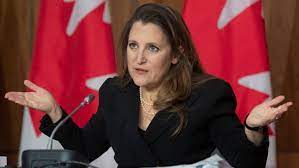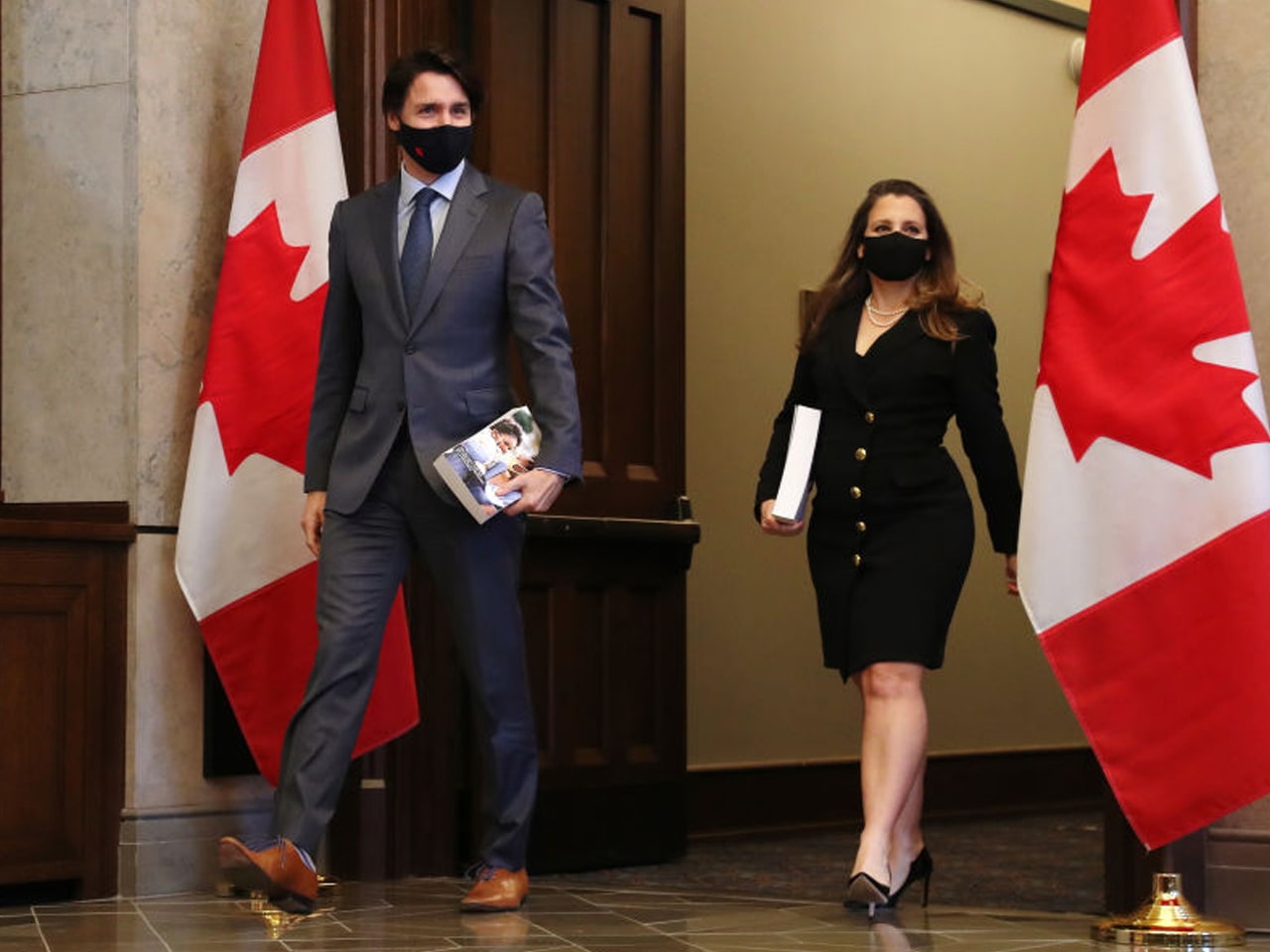DESIBUZZCanada
Events Listings
Dummy Post

International Day Of Yoga To Be Virtually Celebrated Saturday At 4pm

CANCELLED: Coronavirus Fears Kills Surrey’s Vaisakhi Day Parade

ADVERTISE WITH US: DESIBUZZCanada Is The Most Read South Asian Publication Online

SURREY LIBRARIES: Get Technology Help At Surrey Libraries

WALLY OPPAL: Surrey Police Transition Update On Feb. 26

GONE ARE THE DAYS - Feature Documentary Trailer

Technology Help At Surrey Libraries

Birding Walks

Plea Poetry/short Story : Youth Contest

International Folk Dancing Drop-in Sessions
Finance Minister Freeland’s First Budget Big On Spending To Kickstart Post Pandemic Economy
- April 24, 2021

While there were many critics of the budget, there was also applause for the first pandemic federal budget. Metro Vancouver applauded the federal government’s ongoing commitment to supporting people, businesses and those who are most vulnerable to the continuing effects of the COVID-19 health crisis, as outlined in the 2021 budget.
OTTAWA - Finance Minister Chrystia Freeland tabled her first federal budget this week and it was heavy on spending to kick start post pandemic economy.
Also big were green initiatives and money for indigenous communities in a budget that includes more than $101 billion in federal spending.

Here are some highlights of the 2021 federal budget:
Big measures:
$101.4 billion in new spending over three years to fuel the recovery and kick-start the transition to a green economy.
$30 billion over five years and $8.3 billion per year after that to create and sustain a national child care program. Goal is a $10/day child care service by 2025-2026.
$18 billion to build safer, healthier Indigenous communities.
$17.6 billion for green recovery — to conserve 25 per cent of lands and oceans by 2025 and to put Canada on course to exceed climate change targets by cutting emissions to 36 per cent below 2005 levels by 2030.
Extension of pandemic business and income support measures, such as wage and rent subsidies, through the fall.
Taxable grant payment of $500 to Old Age Security pensioners age 75 or older as of June 2022 and a 10 per cent boost to maximum OAS benefits for pensioners 75 or older starting July 1, 2022.
Deficit and debt
Deficit at $354.2 billion in 2020-21 and $154.7 billion in 2021-22, expected to gradually decline to $30.7 billion in 2025-26, or approximately 1 percent of GDP.
Debt-to-GDP ratio soars above 50 per cent, then falls to 49.2 percent by 2025-2026.
Jobs and workers
Extension of maximum period of employment insurance sickness benefits, from 15 weeks to 26 weeks.
Projection of 1 million new jobs created by the end of the year.
A new $15 federal minimum wage.
More highlights
$4.4 billion to help homeowners with green retrofits through interest-free loans of up to $40,000.
$3 billion over five years to help provinces/territories improve long-term care.
$2.5 billion to build and repair 35,000 housing units for vulnerable Canadians.
$1 billion for the tourism sector for festivals and cultural events.
New tax of 10 to 20 per cent for luxury cars and aircraft worth more than $100,000 and luxury boats over $250,000.
$300 million to support Black and other underrepresented entrepreneurs.
No promise of funding to implement a national pharmacare program.
$236.2 million over five years, and $33.5 million per year afterward, for the departments of National Defence and Veterans Affairs to eliminate sexual misconduct and gender-based violence in the military and to support survivors.
Extension of interest-free period for Canada student and apprentice loans to March 31, 2023, at a cost to the government of an estimated $392.7 million in 2022-23.
While there were many critics of the budget, there was also applause for the first pandemic federal budget.

Metro Vancouver applauded the federal government’s ongoing commitment to supporting people, businesses and those who are most vulnerable to the continuing effects of the COVID-19 health crisis, as outlined in the 2021 budget.
“The pandemic has exacerbated vulnerabilities in our systems and placed an unacceptable and disproportionate burden on those who can least afford it, including racialized people, youth, new Canadians and women,” said Sav Dhaliwal, Chair of Metro Vancouver’s Board of Directors. “The Government of Canada has clearly signaled its commitment to addressing issues like climate change, social equity, reconciliation, affordable housing, and the environment as we work together to set our region up for success in the digital economy.”
Dhaliwal said expanding financial support will provide desperately needed ongoing relief for a majority of the population, coast to coast, that grapples with personal, health, job and other pandemic-related challenges every day.

















